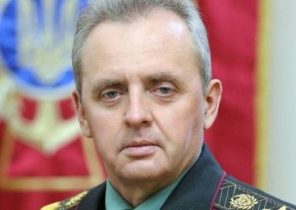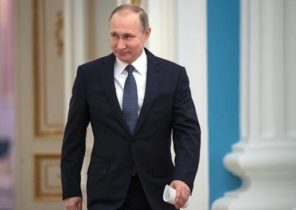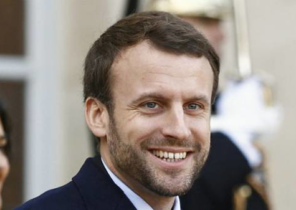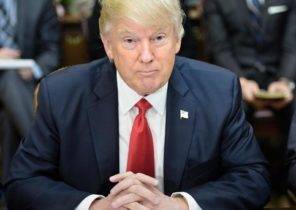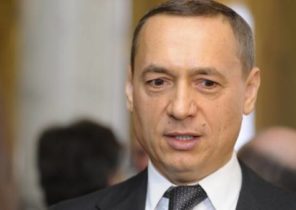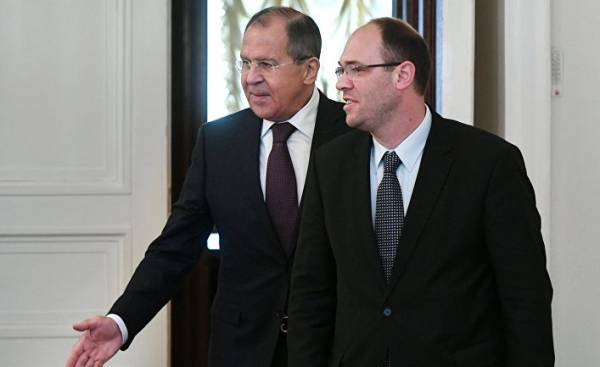
Twice in the recent Premier Andrei Plenkovich defended the deputies of the Ministers, the resignation which many of them demanded. However, he mainly argued that the Ministers enjoyed his full confidence. And until he trusts them, they will remain in their places. Ministers from the party “Bridge” has lost the confidence of the Prime Minister because he had not supported the colleague that enjoys the confidence of the Prime Minister (so remains to this day). The speech of the Finance Minister Zdravko Maric the. It is not clear how things stand with the confidence of the Prime Minister the Minister of science and education Pave the Rapid, because it is against his will, left his post.
It is unclear how the Prime Minister trusts the newly appointed Minister of foreign Affairs Maria pejčinović Buric. If he trusted her infinitely, it just would not be instead, members of the Committee on foreign policy. For example, a representative of the Committee Domagoj Hajdukovic asked about statements by Croatian Prime Minister, made during a visit of the Ukrainian Prime Minister Groisman, and their consequences on Croatian-Russian relations. Plenkovich said that Gaidukovich — a victim of Putin’s hybrid war information, and has not given the Minister for foreign Affairs of something to say about that, although the Committee sought pejčinović Buric.
Trust the Prime Minister the head of diplomacy?
The same evening, speaking in the “Diary” on HTV, Minister for the fourth time running Buric said he hopes to improve economic relations with Russia. Presenter did not ask the Minister whether she has any grounds for such hopes, because the Russian Ministry of foreign Affairs for the second time reacted sharply to the statement by Prime Minister Plenkovich about the Ukrainian crisis. In addition, the resolution of the crisis in “Agrocare” took such a turn that any reasonable person might assume that if this continues, this will be an additional reason for the deterioration of Croatian-Russian relations, and not to improve them.
As well as the response of Plenkovich had no relation to the question posed by Gaidukevich, the answer pejčinović Buric to the question the presenter was clearly contrary to what the Prime Minister said on behalf of his Minister, the members of the Committee on foreign policy. Foreign Minister hopes for improvement in Croatian-Russian relations, and the Prime Minister as if seeking their deterioration or, at least, considers them to be irreparable.
While I’m not saying that the Prime Minister was wrong when, in conversation about ways of solving the Ukrainian crisis have invoked international law. However, it is interesting that he appeals to this law only in the case of Ukraine but is silent about Syria, Iraq or Libya. If compliance with international standards has always been the first criterion for building a relationship with a particular state, it is unlikely that Croatia would support some kind of relationship with the United States. And relations with Israel would be extremely intense, given the continuing construction of Israeli settlements in the Palestinian territories in defiance of the resolutions of the UN security Council.
It is not international law
If we consider the situation from the point of view of international law, the Russian operation in Syria is legitimate, since the Russian armed forces are there by agreement with the internationally recognized government of Syria. But the presence of the United States, who are attempting to overthrow the government, recognized at the international level, contrary to the provisions of international law. Probably in our case it is not narrow-mindedness of the Prime Minister, and his decision to take in the interests of the Republic of Croatia, such a position only in the Ukrainian question. If we constantly appeal to international law, when it comes to other crisis regions, as well as about the responsibility for the migration of millions of poor people in Europe, it may harm the relations of Croatia with its key allies.
In this case, as in most other situations, when politicians appeal to the law, it turns into a tool in their hands. In this regard, it is worth asking what the Croatian policy is in question. Regarding the strengthening of relations with Ukraine and support its European path, here is how I think the ambiguity there. Intensification of economic relations and the enlargement of the European Union meets the interests of both countries. By the way, in the interest of Croatia also meets the speedy expansion of the European Union and the Balkans, so it is worth making a priority of its foreign policy.
Inappropriate analogy with Croatia
Given that part of the Ukrainian territory, Kiev authorities do not control, reasonable looks Croatian support Ukraine in its efforts to reintegrate the Eastern regions. The analogy with Croatia, 25% of the territory in the first half of 90-ies was occupied by the Serbs, the Croats only helps to feel the challenges now faced by Ukraine.
Parts of Eastern Croatia, where there was operation Storm, were returned thanks to the UN peacekeeping mission UNTAES. Prime Plenkovich decided to offer this positive Croatian experience as a model for the solution of the Ukrainian question. While Plenkovich as if deliberately overlooked the facts that confirm that a complete analogy between the former Croatian situation and the current situation in Ukraine is impossible. The reintegration process of Eastern Slavonia and Western Sirmium was conducted on the basis of the relevant resolution of the UN Security Council. None of its members have not exercised their right of veto. That is the Russian Federation, as a permanent member of the Security Council, also supported the idea of holding today, the most successful of the UN mission for peace.
No superpower no more
By the end of the peaceful integration of the occupied regions of Eastern Croatia, Serbia had already lost the war in Croatia and the fate of Bosnia and Herzegovina was determined by the Dayton agreement, signed in 1995, although all three local warring ethnic groups were equally dissatisfied with it. Established all the preconditions for Serbia were imposed on the solutions that implement the mission UNTAES (UN Interim administration mission in Eastern Slavonia, Baranja and Western Sirmium).
Before that, on the sidelines of the negotiations in Dayton, presidents Tudjman and Milosevic agreed to Urutskogo provisions of the agreement, in which today realized the rights of the Serbian minority in the region. One of the diplomats who put pressure on Milosevic to agree to the decisions of the international community, was the Russian diplomat Vitaly Churkin. He recently died in the United States, where he worked as permanent representative of the Russian Federation to the United Nations. That is, the international community acted together, and all the permanent members of the Security Alliance was unanimous in the opinion that Milosevic is the main culprit of all problems.
We can say that in the late 90-ies of the only superpower that existed at the time, made the parties who fought on the territory of the former Yugoslavia, make your solution to the problem. And everything that happened (up to the bombing by NATO of Serbia because of the policies of Milosevic in relation to Kosovo), supported by the Russian Federation. Because now it is directly involved in the events in Ukraine, although Russian authorities claim the opposite, it is clear that to apply the model UNTAES impossible. The Security Council cannot adopt a resolution with which the Russian Federation would not agree. In addition, today the world is multipolar, and the repetition of the situation of the 90-ies, when America acted as the undisputed arbiter, it is impossible.
Because of the “Agrokor” relationship can only get worse
Therefore, the proposal of the Croatian Prime Minister concerning the Russian Federation, are inappropriate, especially given that he has not previously discussed them with representatives of this country. It is clear that Croatia can significantly affect decision-making in the UN Security Council and on the policy of NATO and the EU. Taking into account the existing differences between Euro-Atlantic allies, and the uncertain future of the European Union, it is not very clear whether the statement of the Croatian Prime Minister kind of messages from these structures.
On the other hand, the Russian Federation may influence events in the regions directly adjacent to Croatia. So, the Security Council cannot take a decision on possible changes to the Dayton agreement, which Croatia may be interested, without the consent of Russia. Similarly, it can affect the speed of decision-making regarding emissions from refineries in the Bosnian Brod.
The crisis in “Agrocare” can result in the fact that because of the actions of the interim administration, some creditors will benefit from this crisis, while major lenders (the Bank) due to the reduction of the insolvency estate will lose the opportunity to recover a reasonable percentage of their claims. In this case, it may happen that the Russian side will refer to the provisions of international trade law and begin proceedings against the Republic of Croatia.
However, Croatia is not necessary to change the position on Ukraine
In General, it seems to me that Russia, regardless of the mode of Western sanctions against it, and unsuccessful attempts to influence the political situation in Montenegro and Macedonia, still has a number of tools to advance its foreign policy interests. And in Croatia such tools for implementing the promises of Prime Minister, concerning methods of solving the Ukrainian crisis, much less. Isn’t it tragicomic that Croatia seeks to set the tone for European relations with Russia, while its European neighbours are fenced off from it with barbed wire?
I don’t want to say that Croatia needs to change its position in the Ukrainian question. I want to convey that the art of diplomacy, in particular, is the ability to develop a relationship with one of the parties involved in the conflict, and not to jeopardize the relationship with the other party, to your country not hurt the consequences. The Croatian proposals for a solution to the conflict between Russia and Ukraine would have sounded a lot more convincing if Croatia has demonstrated the ability to solve their internal political problems which affect the country in the first place.

